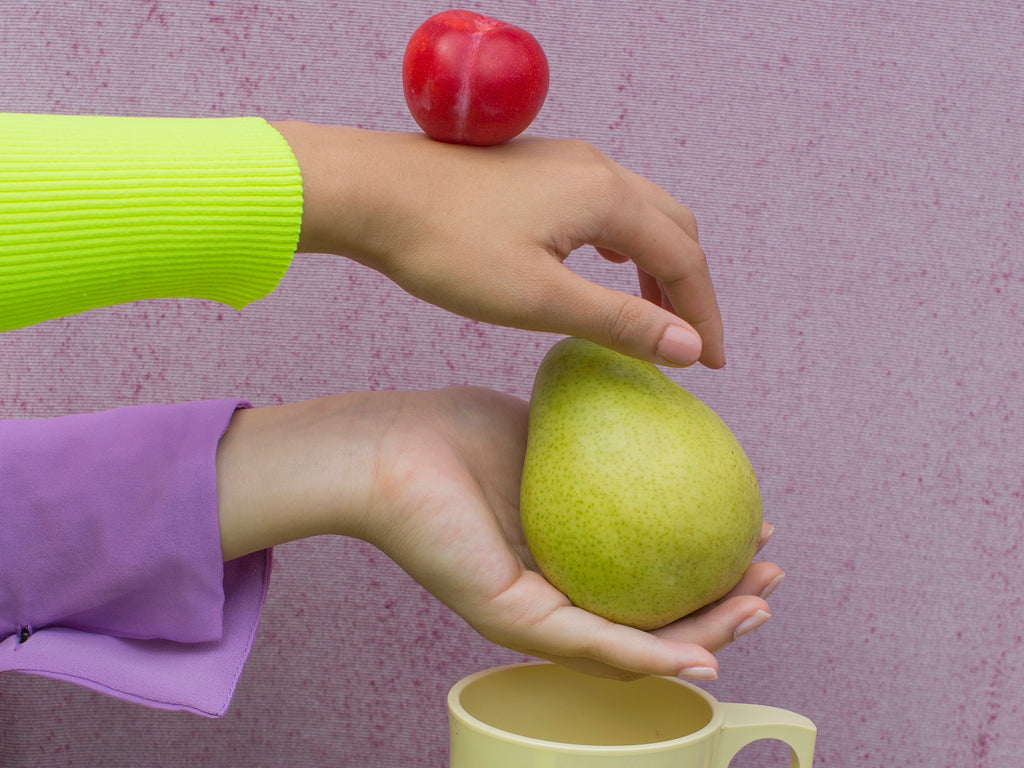How Ara Katz is Redefining “Self-Care” as Rooted in Science with Seed
The co-founder, mother, and self-proclaimed serial entrepreneur unpacks her philosophy on what it means to be well.
Ara Katz hates the word “success”. Not because of its listed definition in a dictionary (note: “the accomplishment of an aim or purpose”), but because it implies that we should always be optimizing -- for maximum profit, power, efficiency...the list goes on. It’s hard to remember a time when we weren’t always striving for more. On the contrary, Katz is interested in a different set of metrics, very nearly outside of monetary gain all together: one grounded in health and science.
“If you’re asking for our North Star, it’s that we’ve impacted health,” she says. “And for us, that means all living organisms -- not just humans -- and that we’ve done something for people who interact with us that causes a shift in perspective. We want people to be more empowered to make better decisions every day.”
As a self-proclaimed serial entrepreneur, Katz knows the allure of gain all too well, and, consequently, is also deeply familiar with the concept of burnout. After consistently having one foot in the tech world while devoting herself to “next-generation storytelling,” she worked on a myriad of projects, including Spring; the app that revolutionized online shopping in a time when it wasn’t quite so easy to hit “purchase” on your iPhone. Katz got pregnant during the early days of Spring, and had a miscarriage; she quit the night of her procedure and committed to reconfiguring her life: “It was a really good inflection point in my journey, as to what was viable in my life and what I wanted to create.”
After she had her son, Pax, came Seed, the company that Katz founded in 2018 with Raja Dhir. Seed currently only offers a single subscription -- a “Daily Synbiotic” probiotic that aims to “reclaim the term for science and establish a new standard” -- but their work as a company goes far beyond simply selling a product. Katz seems more interested in pushing science forward than joining the laundry list of companies profiting off of our collective obsession with wellness; because of that, Seed is kind of like the perfect research-based antidote to an awful lot of self-care marketing campaigns that do little more than skim the surface of what it means to be “healthy”.
“It’s really been a lifelong curiosity for me around how the body works and how you can best care for this machinery that carries us around all day,” she says.
“You can create these companies and you can get large groups of people to do things and you can fake community, but then the question is, like, What are you actually using it for? What do you use that power for? So I knew that I really wanted [Seed] to be impactful.”
Seed is built on a foundation of scientific inquiry and application. Honing in on the microbiome -- i.e., the microorganisms (mostly bacteria) that live on and in our bodies, and, thus, play a huge role in our wellbeing -- Seed is committed to sustaining and enhancing health (of humans and the planet). This is just the beginning: Katz, Dhir, and their team of doctors, researchers, storytellers, and scientists have plans to expand their lineup and keep their community up-to-date on research progress via the Pipeline.
Back to the wellness industry at large: in sum, it’s currently worth about $4.2 trillion, and growing. In all of that value, Katz wants to know: Is any of it actually improving our health? “I think it’s a disservice to our deeper understanding of our bodies. We’ve never been sicker. So I think there was a growing skepticism on my part, but also a deep belief that really set me on a journey to figure out what would not contribute to the noise, but instead, what would prompt a perspective shift?”
Katz’s ambitions for Seed feels at times larger-than-life (this is about the entire human race, and the planet, after all), but running a company grounded in a desire to gain scientific understanding about our bodies and our environment has given Katz new insight with which to grapple.
“It has really opened my eyes to how you live when you don’t have health,”
she says. “You meet a lot of people who have somewhat of a hopeless health situation, and I don’t think I realized before this how much education can lead to healing and empowerment. We’re giving people information and educating them in a way that doesn't feel like you're also trying to sell them something, and that’s important.”
Katz has a pragmatic approach to wellness that is reflective of her lifelong interest in science and biology. And though there may not be a singular way to determine what constitutes a life well-lived, there are some universal truths that each of us can hold onto, in sickness and in health.
“There’s a lot of notions of wellness, but I think the best marker of wellness, which is health, is resilience. The idea that you’ll never get sick or that your immune system won't ever be challenged is unrealistic, so the real question is, How resilient are you? When you can manage those bumps -- when they feel more like bumps than peaks and valleys -- it’s not about avoiding perturbations or provocations, but how fast you can come back to baseline.”
Image by Clémence Polès
This post is tagged as:
You may also like...
The Latest
Do Good Werk
9 Passive-Aggressive Email Phrases That Are Basically Evil
A Rosetta Stone for every time you want to :’).

Woo Woo
Get to Know Your Astrological Birth Chart
How to find meaning in the stars — and what it means for you.

People & Places
The 5 Best Places In New York To Meet Your Next Investor
Where to rub shoulders with the city's movers and shakers.

Do Good Werk
10 Unhealthy Thoughts You Convince Yourself Are True as a Freelancer
If you work alone, you might be particularly susceptible to distorted thoughts that hurt your mental health.

People & Places
Creating a Conference-Meets-Summer-Camp for Adult Creatives
An interview with Likeminds founders Rachael Yaeger and Zach Pollakoff This past September, I sat in front of an obituary I wrote for myself after a session with a death doula. No, I didn’t know w...

People & Places
When Something Golde Stays: An Interview with Golde’s Co-CEOs
“For us it was never a question,” says Issey Kobori, speaking of the decision to build a business with his partner Trinity Mouzon Wofford. At just shy of 27, Kobori and Wofford have secured a host ...

Better Yourself
Are They Toxic? Or Are They Human?
There’s a difference between putting up boundaries and putting up walls, and the latter is what breaks relationships.

Do Good Werk
How To Combat Seasonal Affective Disorder At Work
Here’s what to do if seasonal affective disorder starts to take a toll at the office.

People & Places
Reclaiming Womxn's Wellness Spaces from a White-Dominated World
How The Villij built a collective that their community can connect to.

Better Your Werk
Goal Setting You Can Actually Feel Good About
A how-to guide on how to find the satisfaction you're searching for.





